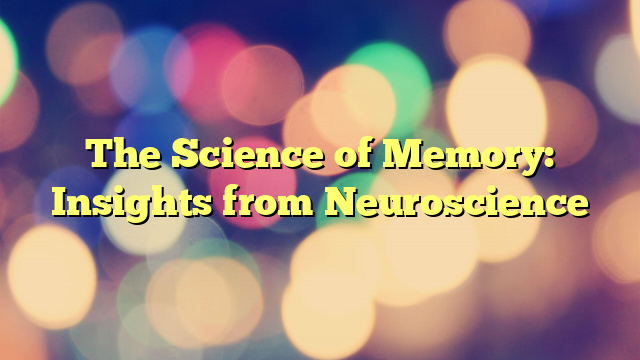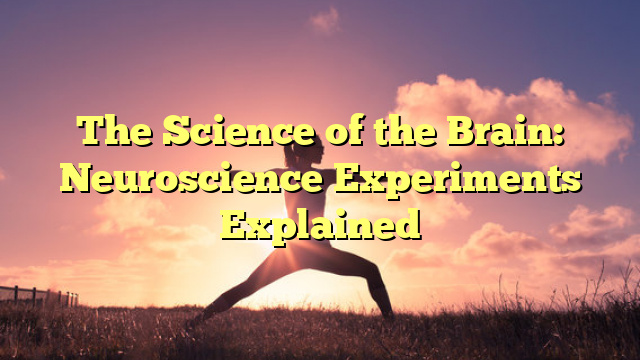Memory is a fascinating aspect of human cognition that has intrigued scientists and researchers for centuries. Over the years, advancements in neuroscience have shed light on how memories are formed, stored, and retrieved in the brain. In this article, we will explore some of the key insights from neuroscience about the science of memory.
How Memories are Formed
Memories are formed through a complex process that involves multiple regions of the brain working together. When we experience something new, such as a significant event or piece of information, our brain begins to encode this information through a process called memory consolidation. This process involves the strengthening of connections between neurons, known as synapses, in the brain.
Neurotransmitters, such as dopamine and glutamate, play a crucial role in this process by facilitating communication between neurons. As these connections between neurons grow stronger, the memory becomes more firmly established in the brain. This process is known as long-term potentiation (LTP) and is believed to be the basis for memory formation.
How Memories are Stored
Once a memory is formed, it is stored in various regions of the brain depending on the type of memory. Short-term memories are stored in the prefrontal cortex, a region of the brain responsible for executive functions such as decision making and planning. However, for long-term memories, the hippocampus plays a crucial role in their storage.
The hippocampus acts as a kind of ‘memory warehouse,' where new memories are temporarily stored before being transferred to the neocortex for long-term storage. This process, known as memory consolidation, involves the gradual strengthening of connections between neurons in the neocortex, allowing the memory to become more stable and less susceptible to decay or interference.
How Memories are Retrieved
Retrieving a memory involves reactivating the neural pathways that were formed during the encoding and storage of that memory. When we recall a memory, such as a past event or piece of information, our brain reconstructs the memory by reactivating the same pattern of neuronal firing that occurred when the memory was first formed.
This process can be influenced by various factors, such as emotional arousal, attention, and context. For example, memories that are associated with strong emotions or significant events are often more vivid and easier to recall than neutral or mundane memories.
Conclusion
In conclusion, the science of memory is a complex and dynamic field that continues to provide valuable insights into how our brains process and store information. By studying the underlying mechanisms of memory formation, storage, and retrieval, neuroscience researchers have made significant advancements in understanding how memories are created and maintained in the brain.
These insights not only enhance our understanding of how memory works but also have practical implications for improving memory function and treating memory-related disorders. With further research and technological advancements, we can continue to unravel the mysteries of memory and unlock its full potential.
FAQs
Q: Can memories be permanently erased?
A: While it is possible to suppress or alter memories through various techniques, such as therapy or medication, completely erasing a memory from the brain is currently not possible.
Q: Are there different types of memory?
A: Yes, there are several types of memory, including episodic memory (memories of specific events), semantic memory (general knowledge and facts), and procedural memory (skills and habits).
Q: How does aging affect memory?
A: As we age, changes in the brain, such as shrinking of the hippocampus and decreased neurotransmitter levels, can affect memory function. However, cognitive exercises and a healthy lifestyle can help maintain and improve memory in older adults.
Q: Can memory be improved through practice?
A: Yes, regular mental exercises, such as puzzles, learning new skills, and practicing mnemonic techniques, can help improve memory function and cognitive performance.
Unlock Your Mental Potential



